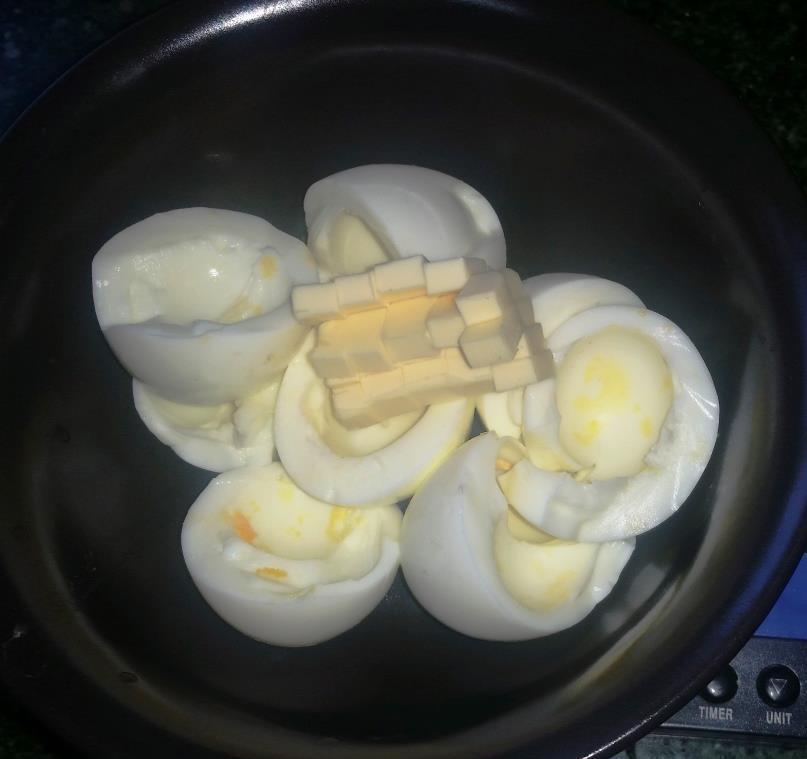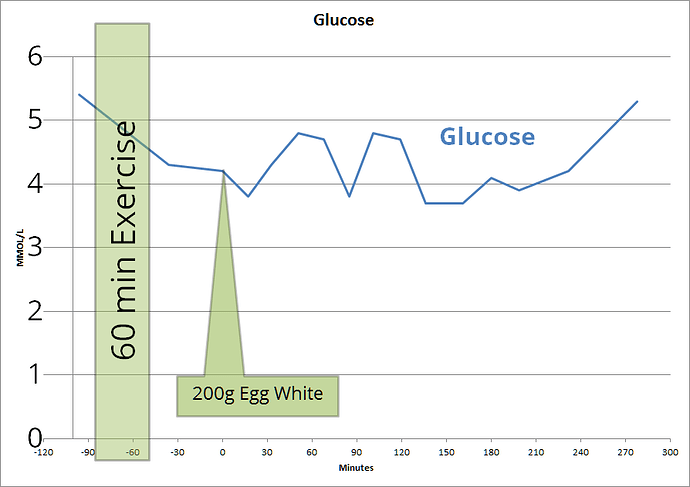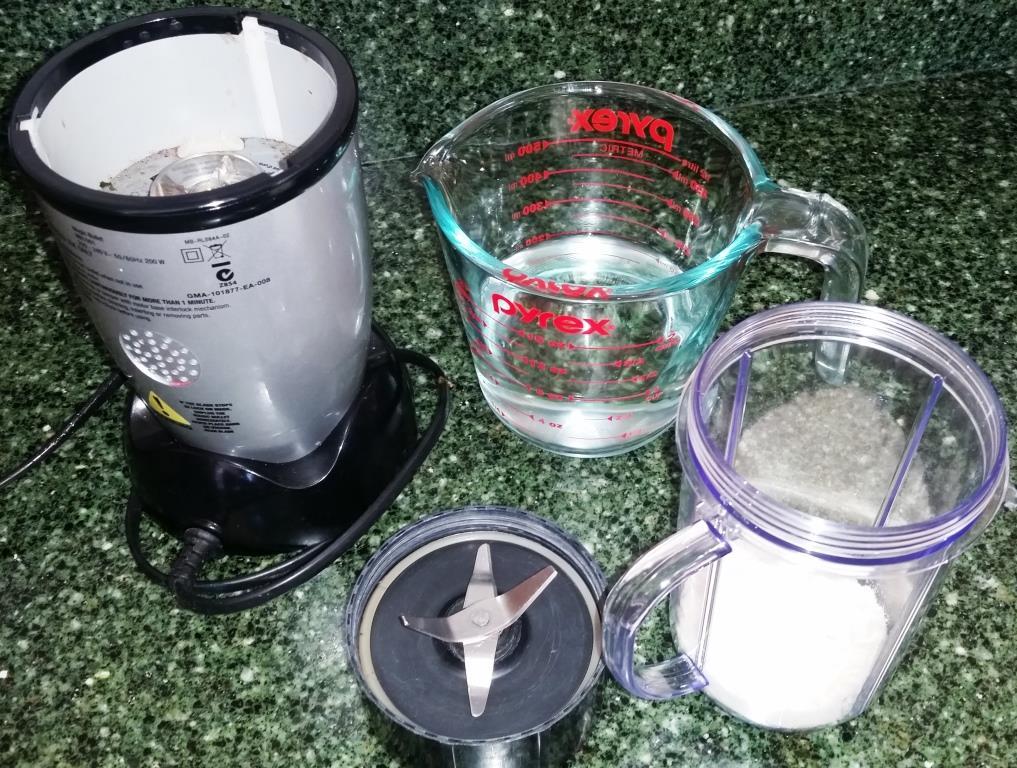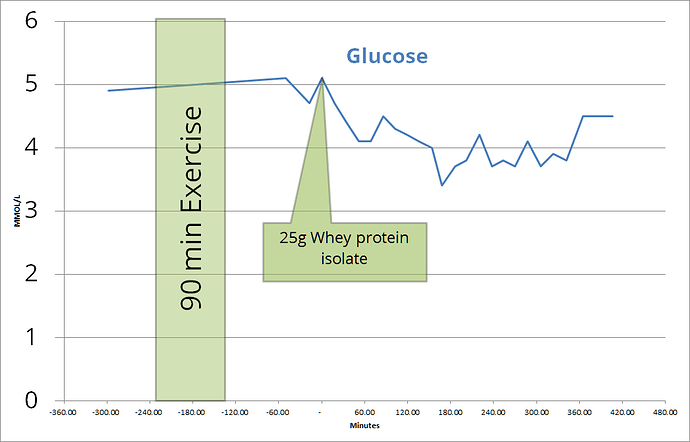I did this experiment after doing 2 5 day fasts, by doing some exercise to fully deplete muscle glycogen and then eating a set amount of protein and tracking my glucose. I added a little short chained fatty acids (butter) just to make sure I was making abundant ketones even if my insulin peaked and my glucose dropped so my glucose production wouldn’t be confounded by my brain increasing demand for the stuff…
The first leg of the experiment I ate 200g of egg whites and 20g of butter and tracked my glucose.
And this is what my blood glucose did
The second leg I did similar exercise (actually 50% more but still to depletion of glycogen) with 25g of whey protein isolate powder (the same amount of protein) blended up with 250ml of water and emulsified with 20g of melted butter.
And this is what my blood glucose did
This self experiment was originally designed to detect if a source of the amino acid aspartate uncoupled ketone production, but I was unable to find a source of protein sufficiently low in aspartic acid. But it turned into an interesting example of the insulinogenic nature of whey especially for a type 2 diabetic.
I apparently make 1.88 times the insulin of a normal person and clear it about 5 times more slowly. This experiment uses serum glucose levels as a proxy for insulin in a glycogen depleted state, as my muscles are an empty reservoir for insulin to clear glucose into … how long my glucose remains low is a good indicator for how long my insulin remained high.
With egg white I had the usual hysteresis you expect from protein causing sequential glucagon and insulin secretion.
With whey my insulin just started pouring out of my pancreas and continued for almost 6 hours.
Which lines up nicely with the science on this subject. Where whey has been shown to be more insulinogenic than eating a meal of only white bread.
Apparently if you are on a low insulinogenic (like a ketogenic) diet, eating whey is probably not working in your favour.






